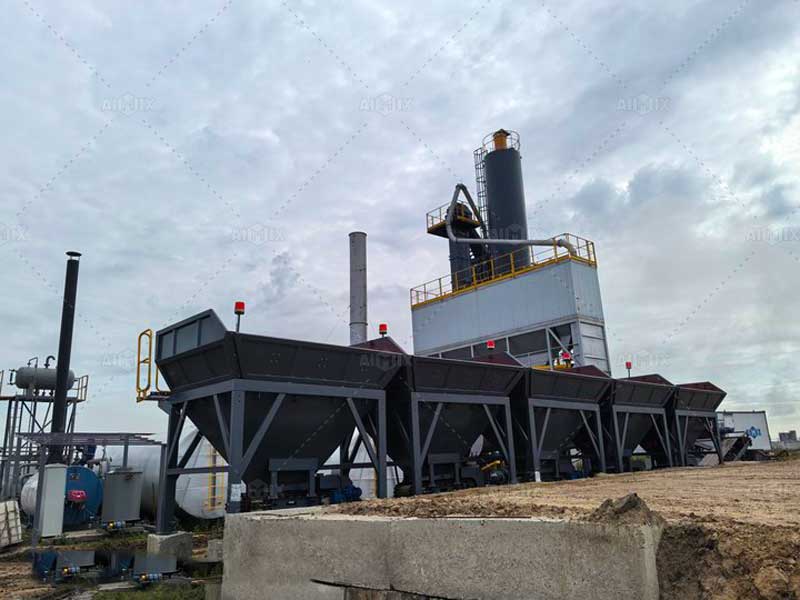


Find the perfect asphalt mixing plant model for both personal and commercial use. Get insights on performance, efficiency, and suitability for your needs.
Asphalt is essential for road construction, highway maintenance, and infrastructure development. For many contractors and construction firms in Indonesia and other emerging markets, owning an asphalt mixing plant is no longer just a supporting tool—it’s a strategic decision. Whether you’re planning to produce asphalt for your own road projects or sell to local contractors, choosing the right asphalt mixing plant model can greatly impact your cost, efficiency, and business growth.
Many customers today don’t just build roads—they want to manage asphalt production to reduce cost and gain extra profit. If you handle multiple construction projects and also supply asphalt to local partners or subcontractors, investing in the right model becomes even more important. A plant that can balance quality, capacity, and versatility gives you full control over production timelines, mix design, and ultimately, your profit margin.
But not all asphalt mixing plants are built for both internal and commercial use. Let’s look deeper into the key factors that influence your decision.
Before selecting a model, consider the following:
If your own projects need 40–80 tons of asphalt per day, but you also plan to sell another 40–80 tons, you should consider plants with 80–160 TPH capacity. This allows you to meet both internal and commercial demand without overloading the system.
Contract work may demand various mix types (e.g., AC-WC, AC-BC, SMA). Plants with advanced control systems and customizable aggregate bins allow you to switch mix designs quickly without wasting raw materials.
Some contractors prefer mobile plants, especially if working in remote or rotating job sites. However, for those planning to run a stable commercial asphalt supply business, stationary plants offer more cost-effective long-term operation.
Can the plant use locally available fuel types—coal, diesel, or heavy oil? Is the dust collection system compliant with local regulations? These factors matter for plant sustainability and acceptance by local authorities and clients.
Based on field data and customer feedback, the following asphalt mixing plant models are highly suitable for both self-use and selling asphalt to others:
The ALT series asphalt drum mixing plant offers continuous mixing and stable output between 20–100 TPH. It’s easy to operate and install, with a compact layout perfect for contractors managing medium-sized municipal or rural road projects. It fits those who want fast setup and cost-effective production without needing frequent mix changes.
This series is ideal for customers who need precise asphalt mix quality. It supports multiple mix types and batch-level control, with production capacities ranging from 80–240 TPH. For those running commercial asphalt supply businesses, especially near urban development zones, the ALQ series asphalt batch mix plant for sale delivers consistent quality and high efficiency.
For contractors working on national road projects or in developing regions, ALYQ combines batch mixing precision with mobility. It offers flexible relocation, capacity from 40–160 TPH, and full-featured systems including dust control, fuel options, and computerized control—suitable for temporary sites or startup contractors growing into commercial production.
If your primary goal is to serve your own projects and occasionally sell leftover asphalt, a drum mix plant (like ALT60) might be sufficient. However, if you’re planning to enter asphalt sales more seriously, a batch mix plant (like ALQ100 or ALYQ80) provides the accuracy, flexibility, and quality control commercial buyers expect.
In addition, think about future expansion. Will your daily demand double in 2–3 years? Choosing a scalable model now can save you from reinvestment costs later.
Choosing the right asphalt mixing plant for both internal use and commercial sales requires more than just looking at price. You need to assess your real production goals, local market demand, mix quality requirements, and long-term business strategy. A suitable asphalt plant gives you independence from third-party suppliers, stronger cost control, and new revenue opportunities.
